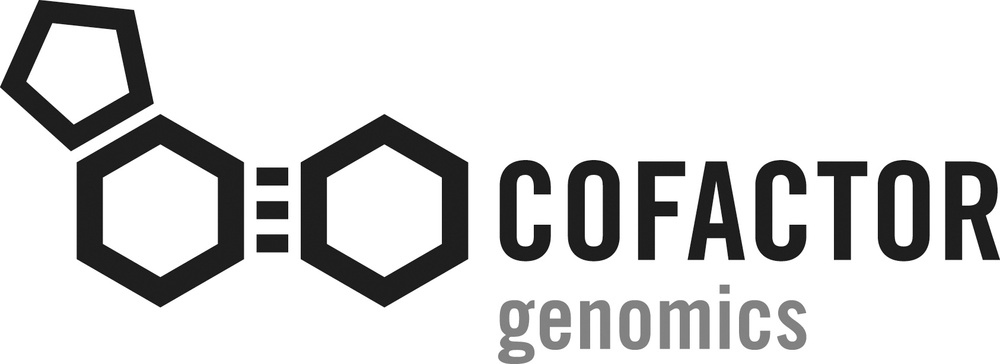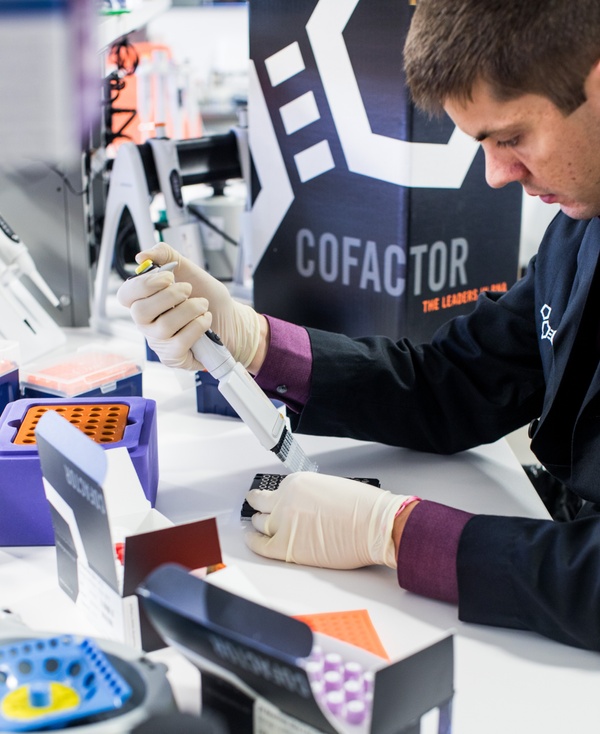SCOTTSDALE, Ariz. -- February 27, 2020 -- Cofactor Genomics, the company bridging the precision medicine gap with Predictive Immune Modeling, today announced preliminary results from a collaborative study with Washington University School of Medicine in St. Louis, which demonstrated the superior performance of the company’s multidimensional RNA biomarker when compared to an on-label PD-L1 immunohistochemistry (IHC) assay in head and neck cancer. The study results will be presented today by Washington University medical oncologist Douglas Adkins, MD, the study’s primary investigator, at the 2020 Multidisciplinary Head and Neck Cancers Symposium, organized by the American Society of Clinical Oncology (ASCO), the American Society for Radiation Oncology (ASTRO), the Society for Immunotherapy of Cancer (SITC) and the American Head and Neck Society.
The retrospective study included 107 patients with recurrent or metastatic squamous cell carcinoma of the head and neck (RM-SCCHN) previously treated with either pembrolizumab, nivolumab, or both therapies. Patients were grouped as responders or non-responders to therapy using Response Evaluation Criteria in Solid Tumors (RECIST). Pre-treatment FFPE solid tumor tissues were analyzed using Cofactor’s ImmunoPrism® Assay versus an on-label anti-PD-L1 IHC assay, and compared at identical sensitivities.
With the current patient response rate to anti-PD-1 therapies at less than 20 percent, predicting which patients will respond to therapy remains a challenge for clinicians and a disappointment to patients.
In the study, Cofactor’s technology maintained high sensitivity (80 percent for both ImmunoPrism and IHC) while significantly decreasing the number of false positives when compared to the PD-L1 IHC assay (from 68 percent to 52 percent, respectively). The cost of inaccurately classifying RM-SCCHN patients as responders represents an average cost of more than $28,000 per patient. In addition to improving patient outcomes, the performance of Cofactor’s technology demonstrates the potential to save payers millions of dollars annually by avoiding unnecessary treatment for patients who will not respond to anti-PD-1 therapies and may encounter adverse events. RM-SCCHN is the first indication the company is pursuing, with recruitment for studies in additional solid tumor indications already underway.
“As we learned from the KEYNOTE-048 study, PD-L1 IHC is an imperfect predictor of immunotherapy response in patients with recurrent or metastatic squamous-cell carcinoma of the head and neck,” said Dr. Adkins. “Better tools are needed to provide clinicians and patients with a more accurate understanding of tumor response ahead of treatment decisions. The use of multidimensional biomarkers rather than single analyte biomarkers represents a promising new approach.”
The multidimensional biomarker used in the study was created using Cofactor’s Predictive Immune Modeling approach incorporated in the company’s ImmunoPrism assay. This novel approach combines RNA signals using machine learning to generate multidimensional models of immune response at the site of a solid tumor that offer greater predictive power than one-dimensional single biomarkers. It has shown improved sensitivity and specificity over imaging technologies and other RNA-based immune cell quantification methods.
“Cofactor’s technology is part of a larger movement in our industry to move diagnostics from standard single-analyte measurements to comprehensive and predictive multi-analyte biomarkers to inform treatment decisions. This study shows significant advancement in predicting responders to checkpoint inhibitor therapy for RM-SCCHN, and we are motivated to pursue additional studies to bring our technology to other cancers,” stated Cofactor Genomics CEO Jarret Glasscock.
To validate this study’s preliminary findings, the company is currently recruiting additional clinical sites that actively treat RM-SCCHN patients with anti-PD-1 inhibitors to power an independent test set. Investigators or trial coordinators interested in participating in the follow-up study should contact clinicaltrials@cofactorgenomics.com.
Cofactor is also actively recruiting centers for studies involving other solid tumor cancers that may lead to additional indications for its technology.
About Cofactor Genomics
Cofactor Genomics is bridging the precision medicine gap by building diagnostic tools to match the right patient to the right treatment at the right time. Predicting patient response currently relies on isolated, single-analyte biomarkers that have failed to deliver accurate therapy response predictions, resulting in unnecessary healthcare costs, and most harmfully, negative outcomes for patients. Cofactor’s products use Predictive Immune Modeling, which leverages RNA data and machine learning to combine biological signals, creating multidimensional biomarkers to deliver on the promise of precision medicine. Cofactor Genomics offers its full-service molecular, informatic, and database tools to make drug discovery, clinical trials and therapy selection more successful. Find out more about how Cofactor Genomics is revolutionizing precision medicine at cofactorgenomics.com.




